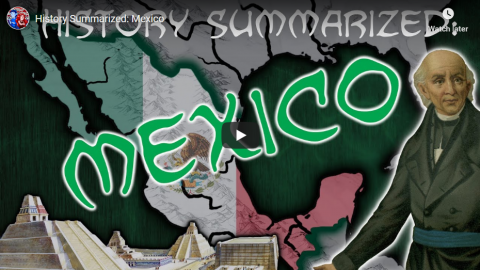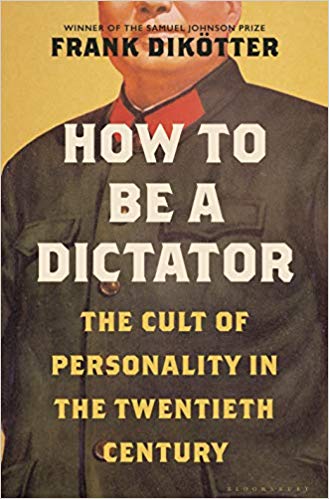World War Two
Published 28 Sep 2019This week, the factions of World War Two begin to crystallise as the Japanese join the Axis powers.
Join us on Patreon: https://www.patreon.com/TimeGhostHistory
Or join The TimeGhost Army directly at: https://timeghost.tvFollow WW2 day by day on Instagram @World_war_two_realtime https://www.instagram.com/world_war_t…
Join our Discord Server: https://discord.gg/D6D2aYN.
Between 2 Wars: https://www.youtube.com/playlist?list…
Source list: http://bit.ly/WW2sourcesWritten and Hosted by: Indy Neidell
Produced and Directed by: Spartacus Olsson and Astrid Deinhard
Executive Producers: Bodo Rittenauer, Astrid Deinhard, Indy Neidell, Spartacus Olsson
Creative Producer: Joram Appel
Post-Production Director: Wieke Kapteijns
Research by: Indy Neidell
Edited by: Iryna Dulka
Map animations: EastoryColorisations by Norman Stewart and Julius Jääskeläinen https://www.facebook.com/JJcolorization/
Eastory’s channel: https://www.youtube.com/channel/UCEly…
Archive by Screenocean/Reuters https://www.screenocean.com.Sources:
– USHMM
1. Accession Number: 1992.252.1 | RG Number: RG-60.0621 | Film ID: 302
2. Photograph Number: 74565
– IMW:
IWM (A 1378)
IWM (A 1376)
IWM (CH 1429)
IWM (C 1819)TimeGhost chronological documentary produced by OnLion Entertainment GmbH.
September 29, 2019
An Axis of Evil is Complete – WW2 – 057 – September 28 1940
History Summarized: Mexico
Overly Sarcastic Productions
Published 27 Sep 2019Go to https://NordVPN.com/overlysarcastic and use code OVERLYSARCASTIC to get 70% off a 3-year plan and an extra month for free. Protect yourself online today!
This video is quite serendipitous in timing — by complete coincidence, this is going live on September 27, the day of Mexico’s true political independence under the First Mexican Empire. This is the 11 year sequel to the more traditional Mexican Independence celebrations of September 16th, which marks Miguel Hidalgo’s proclamation of the “Cry of Dolores” and the start of the Mexican War of Independence. No joke, I only realized this when I was partway through researching the video. I do so much ancient history I’m not used to events having dates we can track to the day.
ANYWAY enjoy this look at Mexican History, here broken into three main acts, the Aztec Empire, the Colony of New Spain, and the Independent nation of Mexico.
“Santianna” By The Longest Johns: https://thelongestjohns.bandcamp.com/…
PATREON: https://www.Patreon.com/OSP
DISCORD: https://discord.gg/sS5K4R3
Being a dictator is a stressful vocation
Gustav Jönsson reviews a new book by Professor Frank Dikötter on twentieth-century dictators:
One of the first things to emerge from Professor Frank Dikötter’s eagerly awaited new book How to Be a Dictator is that it is a stressful vocation: there are rivals to assassinate, dissidents to silence, kickbacks to collect, and revolutions to suppress. Quite hard work. Even the most preeminent ones usually meet ignominious ends. Mussolini: summarily shot and strung upside down over a cheering crowd. Hitler: suicide and incineration. Ceausescu: executed outside a toilet block. Or consider the fate of Ethiopia’s Haile Selassie: rumoured to have been murdered on orders of his successor Mengistu Haile Mariam, he was buried underneath the latter’s office desk. Not the most alluring career trajectory, one might say.
Dikötter’s monograph is a study of twentieth century personality cults. He examines eight such cults: those created by Mussolini, Hitler, Stalin, Mao, Kim Il-sung, Duvalier, Ceausescu, and Mengistu. For them, cultism was not mere narcissism, it was what sustained their regimes; foregoing cultism, Dikötter argues, caused swift collapse. Consider Pol Pot and the Khmer Rouge. Cambodians were unsure of Pol Pot’s exact identity for years, even after he had assumed leadership of the country. The Khmer Rouge, meanwhile, was in its initial stages merely called “Angkar” — “The Organisation.” There was no inspiring iconography. There was no ritualised leader worship. There was only dark terror. Dikötter quotes historian Henri Locard: “Failing to induce adulation and submissiveness, the Angkar could only generate hatred.” The Khmer Rouge soon lost its grip on the country. Dikötter makes an obligatory reference: “Even Big Brother, in George Orwell’s 1984, had a face that stared out at people from every street corner.”
Readers of Orwell will remember that INGSOC has no state ideology. There is only what the Party says, which can change from hour to hour. Likewise, Dikötter argues, there was no ideological core to twentieth century dictatorships; there was only the whim of the dictator. Nazism, for example, was not a coherent creed. It contained antisemitism, nationalism, neo-paganism, etc., but its essence was captured in one of its slogans: The Führer is Always Right. That is what the creed amounted to. Indeed, the NSDAP referred to itself simply as “the Hitler movement.” Nazism was synonymous with Hitlerism. Italian Fascism was perhaps even more vacuous. The regime’s slogan was simple: Mussolini is Always Right. Explaining his method of politics, Mussolini said: “We do not believe in dogmatic programmes, in rigid schemes that should contain and defy the changing, uncertain, and complex reality.”
While it is uncontroversial to argue that Nazism and Fascism were without ideology, as Dikötter writes, the “issue is more complicated with communist regimes.” Naturally, Marxism was connected with Stalin, Mao, Ceausescu, Kim, and Mengistu. But Dikötter rightly says that it was Lenin’s revolutionary vanguard, not Marx’s philosophical works, that inspired them. Doctrines can be interpreted in contradictory ways, creating schismatic movements — as shown throughout the history of socialism. In this regard personality cults are far safer because they are substantively empty. Marxist dictators thus subverted Marxism. Engels had said that socialism in one country was impossible, but that is what Stalin’s Soviet Union favoured. Or consider Kim’s North Korea, which in 1972 replaced Marxism with Great Leader Thought. And as Dikötter writes, “Mao read Marx, but turned him on his head by making peasants rather than workers the spearhead of the revolution.” Reading Marx under Marxism, Dikötter says, was highly imprudent: “One was a Stalinist under Stalin, a Maoist under Mao, a Kimist under Kim.” In short, Marxism was whatever the dictator said, and not what Marx had actually written.
Walther KKW: Competition Shooting in Nazi Germany
Forgotten Weapons
Published on 14 Aug 2019RIA on YouTube: https://www.youtube.com/user/RockIsla…
RIA on Instagram: https://www.instagram.com/rockislanda…The KKW (“Klein Kaliber Wehrsportgewehr“, or small caliber military sporting rifle) was developed by BDW in 1937 as an amalgamation of various .22 rifle elements from other manufacturers as well as BSW itself. It was intended to fill the role of the German national standard target rifle. When the Nazi party took over Germany in the early 30s, the SA consolidated and reorganized the civilian shooting sports in to a format aimed at military training. To this end, they wanted a standardized rifle which would duplicate the handling of the Mauser K98k in .22 long rifle caliber. This was initially the DSM, but in 1935 the SA decided that it wanted a rifle that more closely mirrored the military pattern Mauser. The result was the KKW. For more information on these and other German 1930s/40s training rifles, I recommend the recent book on the subject by Bob Simpson.
http://www.patreon.com/ForgottenWeapons
Cool Forgotten Weapons merch! http://shop.bbtv.com/collections/forg…
Contact:
Forgotten Weapons
PO Box 87647
Tucson, AZ 85754
QotD: Crony capitalists and corrupt politicians love tariffs
Any survey – and certainly any careful study – of the history and reality of tariff policy confirms that tariffs (and other trade restrictions) are almost always dispensed, not for any plausible public-interest reasons, but to satisfy the private interests of rent-seekers. Even if, contrary to fact, economic journals and textbooks were filled with several plausible scenarios under which trade restrictions can improve the economic well-being of home-country residents, the actual history of trade policy is that this policy is one in service to domestic plunderers.
Many who agree with me here will nevertheless scold me for using, à la Bastiat, the provocative word “plunderers.” But I stick to my choice of words.
“Plunderers” is descriptive, for plunder is in fact what trade restrictions are all about. For two and a half centuries now we proponents of free trade have played mostly on the rhetorical turf of protectionists. On this turf there are language biases galore, such as “trade deficit,” a lowering of home-country tariffs described as “concessions” to foreign countries, the arrival in the home country of especially low-priced imports condemned as “dumping,” and, indeed, the word “protection” itself. Also, don’t forget the constant, clanking parade of inapposite military and sports metaphors.
For two and a half centuries now we proponents of free trade have typically treated the efforts of rent-seekers and rent-dispensers to portray their use of the state to enrich themselves at the expense of others with intellectual and moral respect. Why?
No one attempts to intellectually rationalize the theft and violence committed by street gangs. No one attempts to rationalize shoplifting, vandalism, armed robbery, arson, or rape. (It would, do note, be child’s play for a competent economics graduate student to develop a coherent theory of “optimal gang violence” that shows that, under just the right set of circumstances, there is an “optimal” amount of gang violence that improves the national welfare.) We call these destructive exercises of theft, coercion, and violence “theft,” “coercion,” and “violence.” We call these predatory activities what they really are.
By calling protectionism what it really is – the plunder of the many by the politically powerful few – we more vividly and widely expose protectionism’s ugly and cruel reality.
Don Boudreaux, “Quotation of the Day…”, Café Hayek, 2019-08-04.







